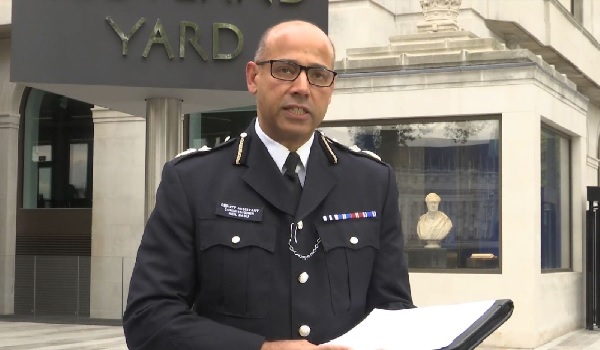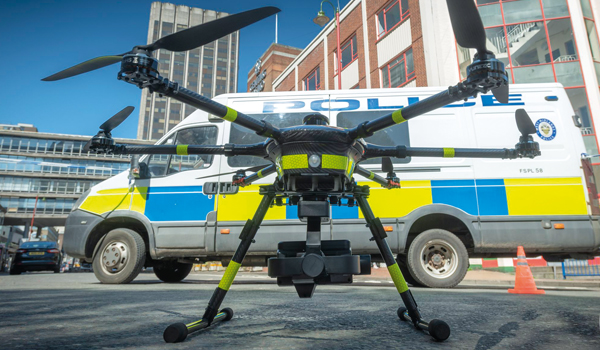Wide-ranging review of policing to ‘have similar impact to the 1962 Royal Commission’
The Police Foundation is to conduct an “independent and comprehensive” review to guide long-term reform of policing.
The review will be chaired by Sir Michael Barber, the former head of the Prime Minister’s Delivery Unit and current chair of the Office for Students.
Funded by charitable donations, consultants Deloitte and other potential supporters, the Strategic Review of Policing in England and Wales aims to have a similar impact to the 1962 Royal Commission that laid the basis for the current police structure.
With the support of all the major policing bodies, the Review will last almost two years and examine how crime, fear of crime and other threats to public safety are changing and assess the ability of policing to respond. It aims to set a long-term strategic direction for the police service so that it is better able to tackle a crime landscape that is being transformed by new technology and wider social change.
It will be conducted by the Police Foundation and its chair, Sir Bill Jeffrey, former Permanent Secretary at the Ministry of Defence,will act as vice-chair,
The Police Foundation’s Director, Dr Rick Muir, said: “It is the right time to take a strategic look at the future of policing in England and Wales. The Government is rightly focused on the immediate resource pressures the police face, including officer numbers, but we also need to think about the long term. Crime has been transformed by new technology, with half of all crime now being cybercrime and wider social change means the police are spending less time dealing with theft and burglary and more time investigating sexual crime and responding to mental health incidents.
“The Review will first map out these changes in the nature of the challenges facing the police and then go on to ask what needs to be done to respond. We will ask what we, the public, want from the police, explore what skills and knowledge police officers will need in the future and look at the way the police service is organised and held to account.”
Issues to be considered by the Review include:
- How crime and the wider demands on the police are changing and the implications of these changes for the police service;
- What the police mission should be, looking in particular at the public’s expectations of the police;
- The capabilities the police service needs to achieve this mission, including its use of technology;
- What the police officer of the future should look like, looking at their role and responsibilities, skills and knowledge and career pathways;
- How the police service should be structured and held to account locally, regionally and nationally;
- How the police should work with other sectors such as health, local government and schools to deal with complex social problems;
- How much funding the police service requires and how this should be allocated to different parts of the country.
It is expected to publish its findings in June 2021 and start by issuing a call for evidence from across government, the police service, academia, business and community groups.
The Review will be accompanied by a programme of engagement events in different parts of the country so that police officers and members of the public can have their say about the future of policing. A number of interim papers will be published during the course of the Review.
Focusing on policing in England and Wales, it will also look to learn lessons from the rest of the UK and from the best police agencies internationally.
Sir Michael said: “The British police service is rightly highly regarded around the world. The demands made on it are constantly changing. Developments such as cybercrime, serious and organised crime, modern slavery, gang-related crime and big increases in the reporting of sexual crime all pose new challenges. In this context, it makes sense to undertake a strategic review and to establish firm foundations for the police service into the middle of the 21st century and beyond. I look forward to working with all interested stakeholders, not least police officers themselves, in taking forward this work.”
Sir Mark Sedwill, the Cabinet Secretary, Martin Hewitt, chair of the National Police Chiefs’ Council (NPCC), Lynne Owens, Director-General of the National Crime Agency, and Sir Thomas Winsor, Her Majesty’s Chief Inspector of Constabulary, have welcomed the Review as being “long overdue”.
It will be formally launched at the Police Superintendents’ Association’s (PSA) annual conference on Tuesday (September 10).
Staff associations have been calling for an independent commission to examine the extent of the policing mission and the structure of the service to meet that mission for many years.
PSA President Paul Griffiths said: “We have consistently called for an independent review of the police service as it is abundantly clear that the service in its current form is unable to deliver to the expectations of the public. We therefore welcome the news that this important work will now take place.
“Our members are experienced, senior operational leaders with a passion for policing, and we will do all we can to contribute our years of evidence and learning towards the review. I hope that this important work will also play an integral part of the wider reform agenda, which must take account of the entire policing landscape.”
John Apter, national chair of the Police Federation of England and Wales, added:”An independent and wide-reaching review into policing is long overdue and something I support. A holistic, independent assessment of what society expects from its police service is something we have been calling for for some time and I am pleased to back Sir Michael and his team. They must shine a light into every corner of policing and ask the questions that need to be asked.
“My colleagues are facing unprecedented demand as they deal with criminality increasing in terms of volume and complexity as well as being expected to deal with more and more non-crime related incidents, picking up the pieces as other public services struggle to cope.
“In order for policing to be able to best serve the public, and to meet the demands the future will bring, society must decide what they want their police to do. We simply can’t continue being all things to all people.
“The Police Federation look forward to contributing to this review and I encourage everyone – the public, police officers, and politicians – to do the same to ensure this review is fully able to evaluate what is needed to enable our police service to be the very best it can be now – and in the future.
“The Police Federation look forward to contributing to this review and I encourage everyone – the public, police officers and politicians – to do the same to ensure this review is fully able to evaluate what is needed to enable our police service to be the very best it can be now – and in the future.”
The College of Policing said it will support the strategic review with evidence.
Richard Hobbs, lead partner for policing at Deloitte, said: “UK policing is under the microscope. A rise in serious violence and falling detection rates in some parts of the country have brought political focus onto the resilience of a model of policing that has long been the envy of the world. Rising demand and budget restraints have forced UK police forces to evolve but questions remain as to whether policing has yet fully adapted to address the profound and continuing shifts in patterns of crime, society, policy and technology. Building on our work at a local, regional and national level, and our Policing 4.0 report, we are delighted to be able to support this timely and critical review.”







